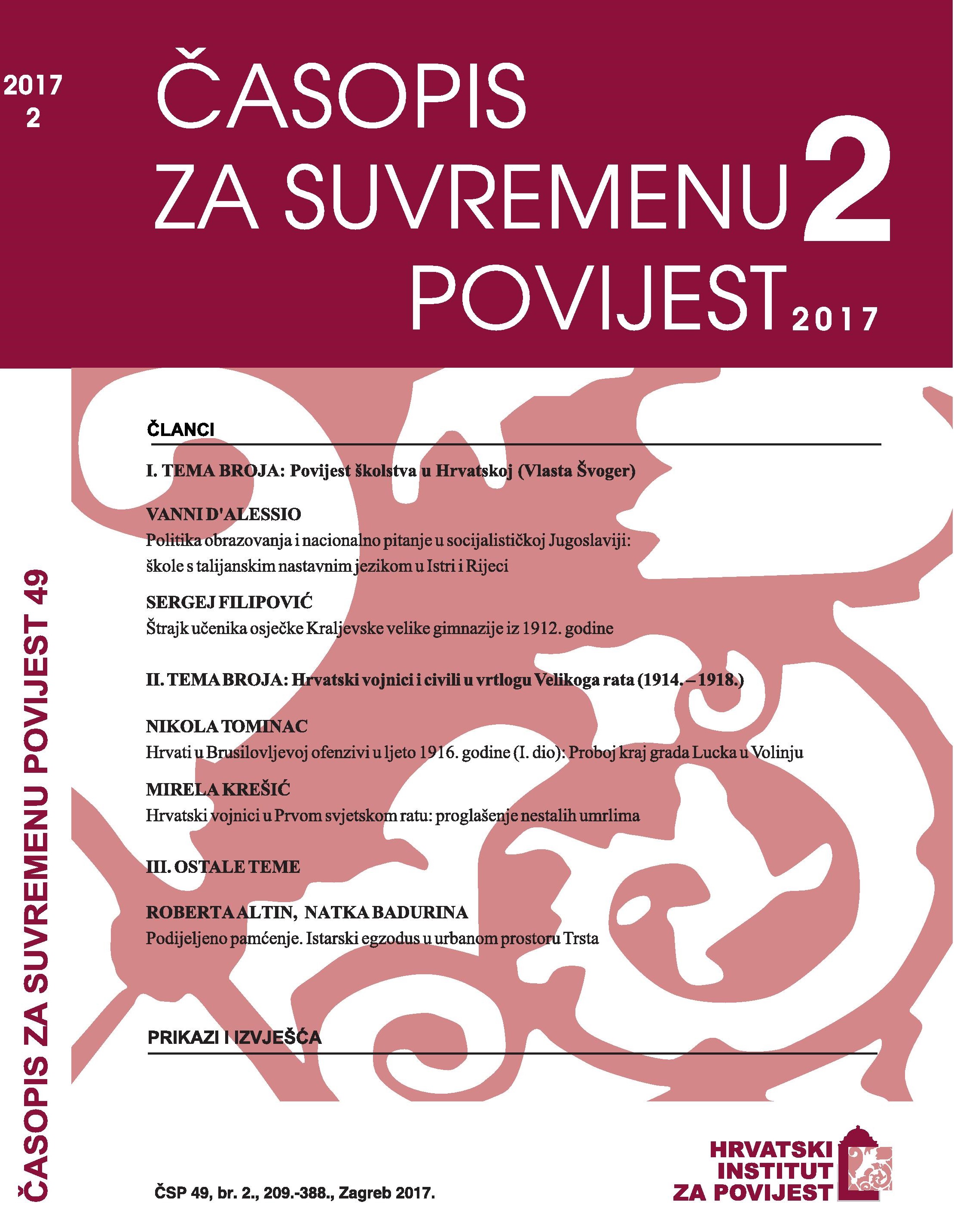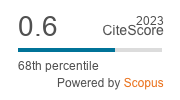Croats in the Brusilov Offensive in Summer 1916 (part I): Breakthrough near Lucko, Volhynia
DOI:
https://doi.org/10.22586/csp.v49i2.40Keywords:
military history; World War I; Brusilov Offensive; 1916; 79th Common Army Infantry Regiment “Count Josip Jelačić” – Otočac (k.u.k. Otočaner Infaterieregiment Graf Jellačić Nr. 79 – IR 79.); K.u.K. 7th Infantry Division (k.u.k. 7. ID); Gruppe Szurmay; k.u.k First Army; k.u.k Fourth ArmyAbstract
The author examines the course of the operations of the Brusilov Offensive of summer 1916 in which the 79th Infantry Regiment from Osijek took part, fighting in the Volhynia (German: Wolhynien) region. He covers the military activities from April till August 1916. The Russian breakthrough near Lucko and Okna was Austria-Hungary’s greatest defeat in the war. The cause of the defeat lies not only in the fact that substantial forces had been redeployed for an offensive in South Tyrol, but also in the terrible performance of the Austro-Hungarian corps and army commands, which seemed to have let down their guard after the breakthrough at Gorlice in 1915. Among other things, this work scrutinises the common opinion of certain military analysts that the collapse of the Austro-Hungarian forces rests on the premise that most of the Slavs serving in the Austro-Hungarian Army had come under the influence of pan-Slavic ideas and simply refused to fight their “Russian brothers”. Namely, examination of the Croatian 79th Infantry Regiment (the “Jelačićevci”), which comprised mostly Croats and Serbs and members of the 42nd Home Guard Infantry Division on the southern flank of the front in Bukovina, suggests that this interpretation cannot be accepted without reservations.
Downloads
Published
How to Cite
Issue
Section
License
Copyright (c) 2017 authors and journal

This work is licensed under a Creative Commons Attribution-NonCommercial 4.0 International License.
Copyright holders are the publisher Croatian Institute of History and the authors. Journal of Contemporary History is an Open Access journal. Users are allowed to read, download, copy, redistribute, print, search and link to material, and alter, transform, or build upon the material, or use them for any other lawful purpose as long as they attribute the source in an appropriate manner according to the Creative Commons licence CC BY-NC. The papers published in Journal of Contemporary History can be deposited and self-archived in the institutional and thematic repositories providing the link to the journal's web pages and HRČAK. Journal does not charge article processing charges (APC). The editors assume no responsibility for statements of fact or opinion made by contributors.




